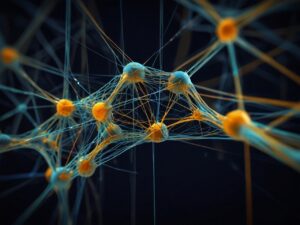AI Revolutionises Biology: See Biology’s Hidden Cellular Secrets
Using Artificial Intelligence to Reveal Hidden Insights in Cellular Data: A Revolution in Biology (AI Revolutionises Biology)
AI Revolutionises Biology / AI revolutionizes biology
Artificial intelligence (AI) is transforming biological research, opening new possibilities for understanding cellular functions and genetic behaviors. Through advanced machine learning, AI can process massive datasets, revealing insights that traditional methods could not achieve. This technology revolutionizes various biological areas, from single-cell analysis to protein structure prediction, reshaping research methods and outcomes.
Single-cell RNA sequencing, a powerful tool in genomics, benefits immensely from AI. Models like scGPT and scFoundation allow researchers to analyze and annotate cells with precision, identifying unique cell types and predicting responses to stimuli. These models, powered by transformers, excel in processing complex, high-dimensional data, making them invaluable for cell research and personalized medicine.
AI-driven tools are advancing protein science as well. Innovations like OpenFold use deep learning to predict protein structures and interactions accurately. These advancements streamline research in diseases and drug development, accelerating the pace of discovery in molecular biology. Mapping protein interactions and cellular networks is now faster and more accurate, making it easier to understand disease mechanisms and develop targeted treatments.
Read more articles like this here
In addition, AI contributes to connectomics—the study of brain connectivity. With AI, researchers can analyze large-scale electron microscopy data, mapping complex neuron networks. This approach provides unprecedented insights into brain structure, aiding in neurological studies and potential treatments for brain disorders.
However, AI in biology faces challenges, such as handling noisy or biased data. Ethical concerns also require careful consideration, as AI models must ensure accuracy without compromising biological integrity. Interpretable AI models are gaining traction, enabling researchers to understand and trust AI’s role in guiding biological discovery.
Overall, AI’s impact on biology is profound, with tools that revolutionize data interpretation and accelerate research. As technology advances, AI’s potential to unlock cellular and genetic secrets grows, paving the way for innovative solutions in medicine and science. With AI, biology enters a new era of discovery and insight.
Keywords: AI in biology, protein structure prediction, single-cell analysis, brain mapping, ethical AI, genomics, cellular data.
Read research article on this here





